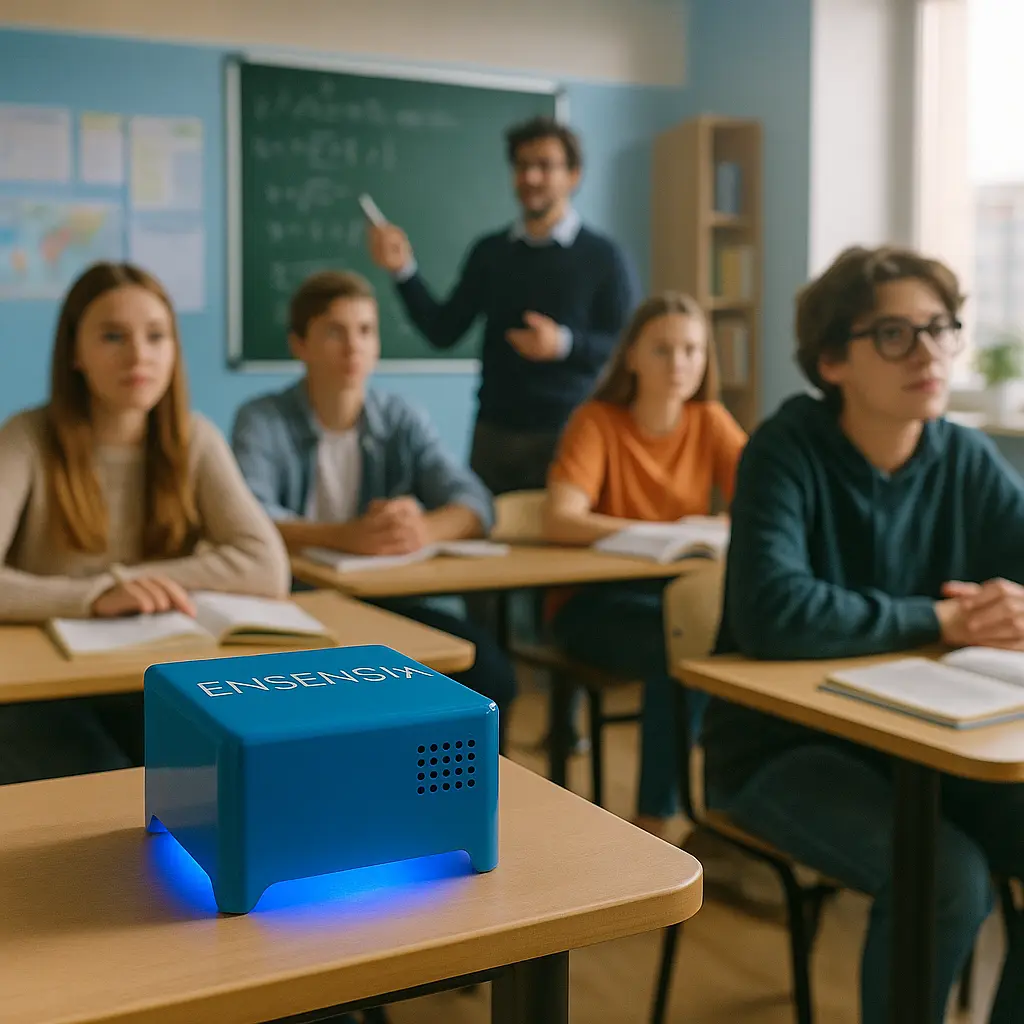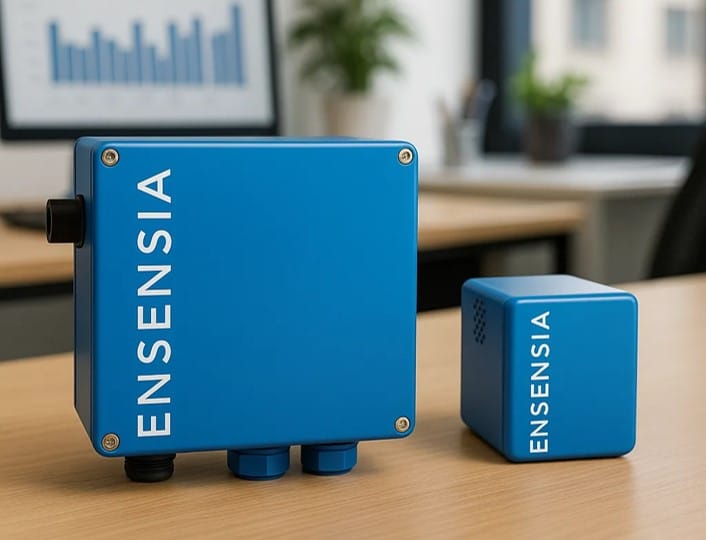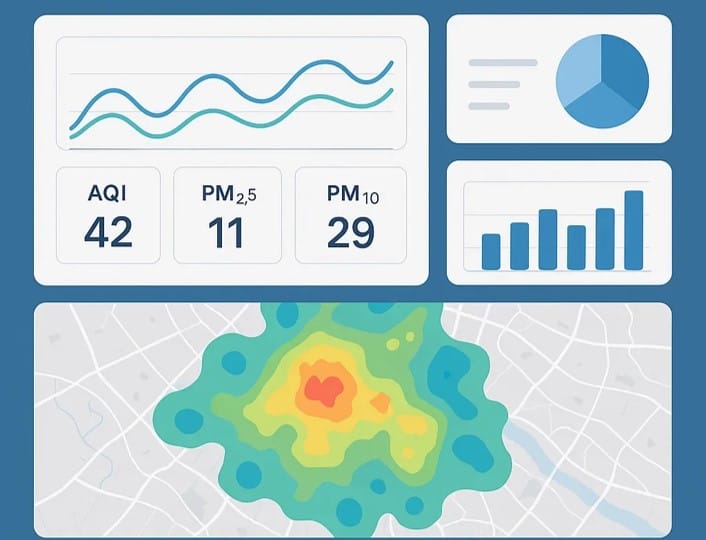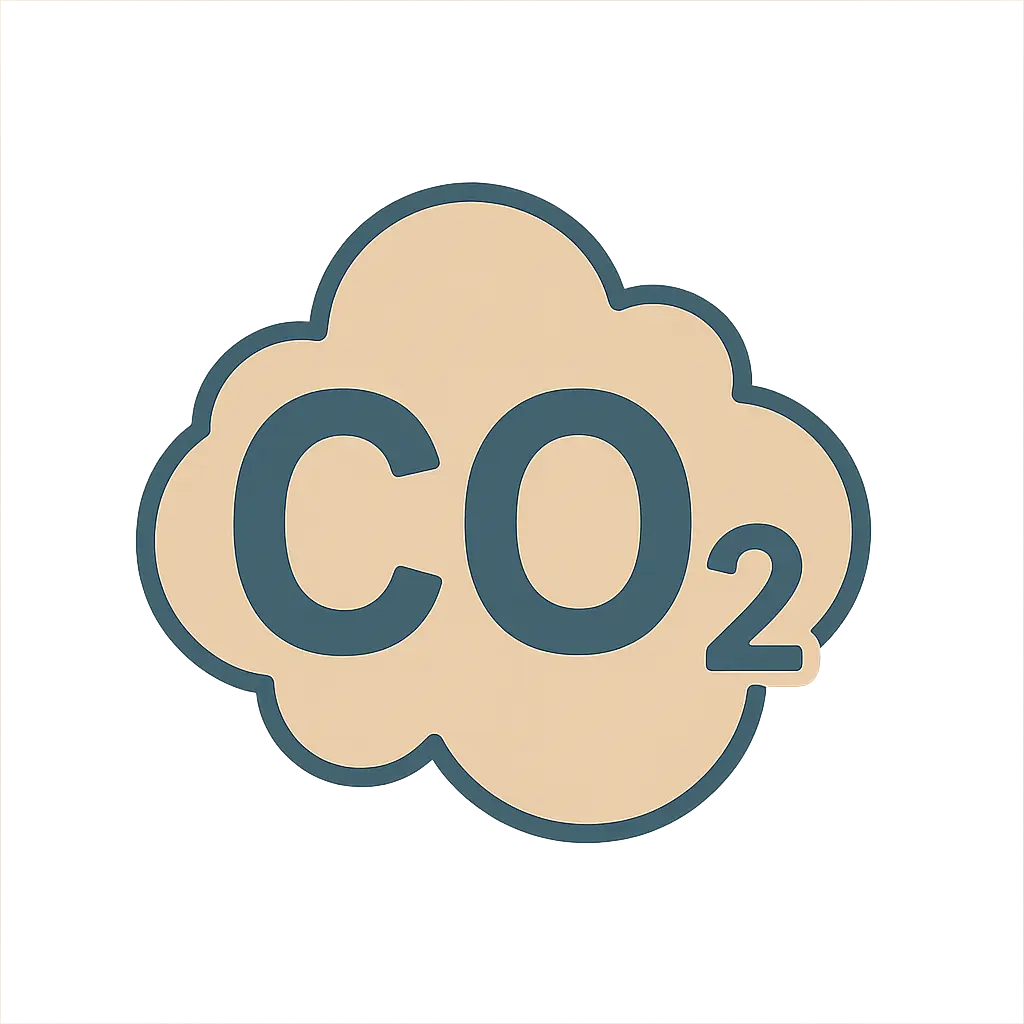Empowering safer, healthier learning through air intelligence
In schools and learning environments, the quality of indoor air sets the foundation for wellness, focus and achievement. Poor air—high CO₂, particles or VOCs—undermines performance, attendance and long-term wellness. EmAIRging equips educators and facility teams with precise air-quality insights, turning monitoring into action for a smarter, healthier educational space.

Why indoor air quality matters in schools
The EmAIRging difference
Our ENSENSIA (and ENSENSIA mini) multi-sensing systems continuously monitor CO2, PM2.5, VOCs, NO2/O3, temperature and humidity—indoors and out. Devices are compact, PoE-ready, quick to install and built for long service life (e.g., NDIR CO₂ >15 years)
Low-cost sensors drift. Ours fight back with AI-powered calibration that enhances precision and inter-unit consistency, validated by FORTH/ICE-HT and the LAQS research group. When you need reference-grade answers, our Portable Lab deploys research-grade instruments for audits, validation and campaigns
All data flows into our cloud platform for live dashboards, alerts, reports, analytics and Application Programming Interface (API) integration. We translate readings into clear recommendations your teams can act on – ventilation tuning, filtration, space scheduling and maintenance
With SmartAQ+, we fuse physics-based forecasting and machine learning to map neighborhood-scale PM2.5 nowcasts and 72-hour forecasts. Know when outdoor air will challenge your building, pre-condition HVAC, and protect occupants and operations
Our process in action
Monitor
Deploy ENSENSIA or ENSENSIA mini sensors in classrooms, labs, libraries, corridors and staff rooms. Add outdoor nodes to gauge external pollutant ingress. Use our Portable Lab for periodic audits, calibration or specialized campaigns.
Interpret
Aggregate multi-parameter data (CO₂, PM₂.₅, VOCs, etc.) in our platform, benchmark against ventilation and health targets accepted in educational contexts and detect root drivers — e.g. CO₂ build-up during lectures, transient PM spikes from nearby traffic, VOC pulses after art or cleaning events, or humidity swings.
Act
Trigger real-time alerts and send monthly decision briefs to facility teams and administrators. Provide prescriptive actions: optimize ventilation schedules, upgrade filters, deploy air purifiers, adapt window/door protocols, and refine cleaning/maintenance policies. Enable integration via API with Building Management System (BMS) or Heating, Ventilation and Air-Conditioning (HVAC) system controllers to support automation (e.g. demand-controlled ventilation).
What benefits your school sees
Improved health & attendance
- Better air means fewer respiratory symptoms, fewer asthma triggers and fewer health-related absences for both students and staff.
Better focus, cognition and academic outcomes
- Well-ventilated classrooms have been linked to higher performance in reading, math and tests
Enhanced operational efficiency and cost-control
- Lower maintenance, fewer facility issues and optimized HVAC/ventilation reduce long-term costs
Stronger staff retention, satisfaction and institutional reputation
- healthier learning environments support teacher well-being and boost community trust.
What's included

Hardware

Software

Services
Let’s build a healthy educational environments together
Partner with EmAIRging to define a tailored, scalable air-quality solution for your school network—whether a single campus or district-wide rollout.
Contact us for a pilot proposal, mapping of sensor needs, and roadmap to a healthier learning environment.
Evidence & science backing
Harvard Healthy Buildings
Demonstrated that even modest CO₂ reductions improve cognitive test performance
EPA / High-Performance Schools
Healthy HVAC and pollutant control reduce operating costs, absenteeism, and liability risks
Ventilation in Schools & COVID studies
Increasing ventilation reduces SARS‑CoV‑2 airborne transmission in schools: a retrospective cohort study in Italy’s Marche region (Eichholtz P. et al., 2024) – Found that classrooms with higher ventilation rates had significantly lower SARS-CoV-2 transmission
Energy models of HEPA filtration
Coupled indoor air quality and dynamic thermal modelling of HEPA filter units in classrooms (Burridge H.C. et al., 2024) – Demonstrated that integrating HEPA filters in classrooms can reduce PM₂.₅ substantially while adding very little to heating energy cost
Our products
Our complete indoor and outdoor measuring solution
Our mini and affordable version of ENSENSIA
Our air pollution forecast model for smart cities






